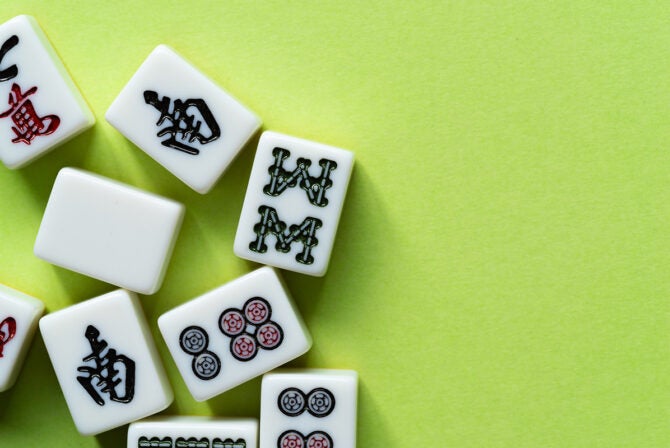The fear can sometimes be so intense that it feels nearly unbearable.
True, being a parent brings with it unparalleled joy, fulfillment and, of course, exhaustion, but the knowledge that our primary responsibility in this world is to keep our children safe is almost too much to handle; it is both an incomparable responsibility and incomparably fear-inducing.
We need to keep our kids safe from choking while nibbling their first soggy Cheerio. We need to keep them safe in the bath, even when the water is no higher than their chubby thighs. In the car we strap them in. On the playground we call out “slow down!” We try to protect them from the wind on their chapped cheeks, from the rash on their tush, from the concrete as they learn to walk, and run, and bike.
Then, as if that wasn’t enough, there are events so incomprehensible that we have to search for wells of strength we didn’t know we had. Whether it’s rockets raining down on playgrounds in southern Israel, deranged nannies murdering the children in their care, or the senseless acts of violence like that which ravaged Sandy Hook Elementary, we could be forgiven for instinctively wanting to lock up our children until they are old enough to marry and have children of their own.
How can we possibly protect our children every minute of the day? And, perhaps most importantly, when there is just so much to fear, how do we raise children that aren’t crippled by fear and anxiety? In other words, how do we raise resilience?
There is no single method for helping our children deal with the events of this week, but there are several ideas that should guide us at all times. The first is acknowledging that while we can’t protect them from everything, we can certainly try to manage what they hear, see, and know. It’s why we download parental controls on computers, why we allow only certain music to be played in the car, and why we don’t need to tell them every detail of every news story to which we are glued. Certainly we should answer questions, and we should do so honestly, but we also have a responsibility to maintain a world of calm, of structure, of consistency and security. They will certainly encounter their fair share of harsh realities, and we will be there to guide them in an age-appropriate way, but we should constantly remind ourselves that they simply don’t need to know everything.
With that said, to avoid fear, kids also need to know that the adults they trust will be honest with them. Part of that honesty is accepting that sometimes we just don’t know the answers. And that’s okay. We don’t always know why things happen. Some of us can explain to our inquisitive children how boats float or how airplanes and birds fly or where babies come from (admittedly, I would need someone to explain the first two to me!) but we simply don’t have all the answers. That’s what makes us human. What separates us from the rest of the animal kingdom is our cognitive domain and our intellect. But what separates us from the Omniscient is that we don’t have infinite knowledge. Admitting that to ourselves is crucial; acknowledging it with our children is humane.
Even as we selectively provide our children with information, we should give them the language with which to deal with their fear and emotions. Ours is not the generation that whispers the word “cancer” as if the mere articulation of the name of the disease will actually bring about a diagnosis. Ours is a generation in which we talk it out, increasingly publicly, and don’t hide what our parents would be mortified to see on our Facebook walls. Psychologists posit that privacy is decreasing at rapid rates, which means our kids are growing up with very little that isn’t discussed. And that means (to many of them) that if something can’t be discussed openly, it must be pretty bad. How awful if they jump to that conclusion when it comes to their emotional state. We need to help them foster their own emotional awareness, and to help build a vocabulary with which to describe how they are feeling.
Finally, researchers have conducted countless studies on resilience, and they have found that empathy is a trait that correlates strongly with resilience. These days, unfortunately, we have many opportunities to cultivate empathy within our families. As our kids struggle to understand the tragedy in Sandy Hook in their own terms, we can allow them to feel sad. Really, painfully sad. Sad for the brothers and sisters who lost siblings. Sad for the students who lost teachers. It may be really heartbreakingly hard to allow your child to feel that kind of pain, to try to imagine that kind of loss in the context of her own family or his own school, but that pain is what builds empathy. It builds sympathy. It builds depth of character and ultimately contributes to resilience.
There are so many things that could go wrong in our daily lives. We need to be responsible and take the necessary precautions to ensure our children’s safety as best we can. But we also need to acknowledge that life is precarious, and we are not in control. If we expend all of our energy on fear, we are teaching our kids that worrying trumps living. We risk raising children who are anxious and afraid rather than confident and resilient. And in so doing, we’ve actually destroyed the very life–and living–we are trying so desperately to preserve.
For more on Sandy Hook, read Mayim Bialik’s beautiful reflection, how one mom explained the tragedy to her three different kids, and the mom who didn’t tell her son about it right away.







